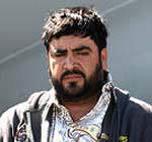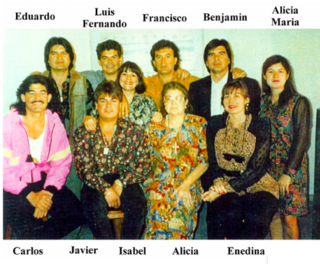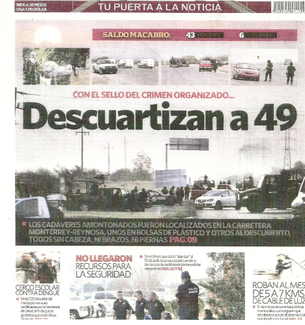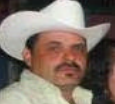Sinaloa is a state of Mexico.
Contents
Sinaloa may also refer to:
Sinaloa is a state of Mexico.
Sinaloa may also refer to:

Culiacán, officially Culiacán Rosales, is a city in northwestern Mexico, the capital and largest city of both Culiacán Municipality and the state of Sinaloa. The city was founded on 29 September 1531 by the Spanish conquerors Lázaro de Cebreros and Nuño Beltrán de Guzmán under the name "Villa de San Miguel", referring to its patron saint, Michael the Archangel.

The Tijuana Cartel or Arellano-Félix-Cartel is a Mexican drug cartel based in Tijuana, Baja California, Mexico. Founded by the Arellano-Félix family, the cartel once was described as "one of the biggest and most violent criminal groups in Mexico". However, since the 2006 Sinaloa Cartel incursion in Baja California and the fall of the Arellano-Félix brothers, the Tijuana Cartel has been reduced to a few cells. In 2016, the organization became known as Cartel Tijuana Nueva Generación and began to align itself under the Jalisco New Generation Cartel, along with Beltrán Leyva Organization (BLO) to create an anti-Sinaloa alliance, in which the Jalisco New Generation Cartel heads. This alliance has since dwindled as the Tijuana, Jalisco New Generation, and Sinaloa cartels all now battle each other for trafficking influence in the city of Tijuana and the region of Baja California.

Ismael Mario Zambada García, also know as El Mayo, is a Mexican former drug lord, co-founder and top leader of the Sinaloa Cartel, an international crime syndicate based in the Mexican state of Sinaloa. Before he assumed leadership of the entire cartel, he allegedly served as the logistical coordinator for its Guzmán-Zambada organization, which has overseen the trafficking of cocaine and heroin into Chicago and other US cities by aircraft, narcosubs, container ships, go-fast boats, fishing vessels, buses, rail cars, tractor trailers, and automobiles.

Joaquín Archivaldo Guzmán Loera, commonly known as "El Chapo", is a Mexican former drug lord and a former leader within the Sinaloa Cartel, an international crime syndicate. He was considered to be one of the most powerful drug traffickers in the world.
The Guadalajara Cartel, also known as The Federation, was a Mexican drug cartel which was formed in 1980 by Miguel Ángel Félix Gallardo, Rafael Caro Quintero, and Ernesto Fonseca Carrillo in order to ship cocaine and marijuana to the United States. Among the first of the Mexican drug trafficking groups to work with the Colombian cocaine mafias, the Guadalajara Cartel prospered from the cocaine trade. Throughout the 1980s, the cartel controlled much of the drug trafficking in Mexico and the corridors along the Mexico–United States border. It had operations in various regions in Mexico which included the states of Jalisco, Baja California, Colima, Sonora, Chihuahua and Sinaloa among others. Multiple modern present day drug cartels such as the Tijuana, Juárez and Sinaloa cartels originally started out as branches or "plazas" of the Guadalajara Cartel before its eventual disintegration.

Rafael "Rafa" Caro Quintero is a Mexican drug lord who co-founded the now-disintegrated Guadalajara Cartel with Miguel Ángel Félix Gallardo and other drug traffickers in the late 1970s. He is the brother of fellow drug trafficker Miguel Caro Quintero, founder and former leader of the defunct Sonora Cartel.

The Mexican drug war is an ongoing asymmetric armed conflict between the Mexican government and various drug trafficking syndicates. When the Mexican military intervened in 2006, the government's main objective was to reduce drug-related violence. The Mexican government has asserted that their primary focus is dismantling the cartels and preventing drug trafficking. The conflict has been described as the Mexican theater of the global war on drugs, as led by the United States federal government.
Operation Tijuana or Operation Baja California of the Government of Mexico is taking place in Tijuana and the surrounding areas of Baja California and Baja California Sur. This operation is part of the Joint Operation Against Drug Trafficking.

Juan José Esparragoza Moreno, commonly referred to by his alias El Azul, was a Mexican drug lord and member of the Sinaloa Cartel, Guadalajara Cartel and Juárez Cartel, three large and powerful criminal organizations. Originally a member of the Dirección Federal de Seguridad (DFS) police agency, he founded the Guadalajara Cartel in the 1970s along with other drug kingpins in Mexico. Following its disintegration in the late 1980s, he went on to lead the Juárez Cartel and eventually settled in the Sinaloa Cartel. He worked alongside Joaquín "El Chapo" Guzmán and Ismael Zambada García, once considered world's most-wanted, powerful and rich drug lords.

The Sinaloa Cartel, also known as the Guzmán-Zambada Organization, the Federation, the Blood Alliance, or the Pacific Cartel, is a large, international organized crime syndicate based in the city of Culiacán, Sinaloa, Mexico that specializes in illegal drug trafficking and money laundering.
Federal Highway 24 is a free part of the federal highways corridors. Fed. 24 is intended to cross the Sierra Madre Occidental from the area of Hidalgo del Parral, Chihuahua, on the east, to the area of Culiacán, Sinaloa, on the west. A limited central section of about 40 to 50 km is not yet completed or graded. This section lies between the villages of Los Frailes, Durango, on the east, and Soyatita, Sinaloa, on the west. Travel is possible through this area, where the road is not yet completed, on unimproved roads using high clearance two-wheel drive vehicles. The two unconnected segments that extend through Los Frailes and Soyatita are graded, but each segment is unpaved for about the last 75 km. The central gap in the highway is in the rugged mountains of the Sierra Madre Occidental. This uncompleted and unpaved portion of the road is not well signed, there are many intersections with other unimproved roads, and it is easy to get lost off the intended route of the highway. As noted later, getting lost may not be a safe proposition. Further, the unfinished segment on the west is at about 820 meters elevation at Soyatita. Just outside Los Frailes, the road coming from the east is at 2,750 meters elevation. The traveler crossing this gap will have to negotiate this dramatic change in elevation traveling a good deal of the way on unimproved dirt roads. Travel times in this central section can be quite slow.
Operation Sinaloa or Operation Culiacan - Navolato is an ongoing anti-drug trafficking operation in the Mexican state of Sinaloa by the Federal Police and the Mexican Armed Forces. Its main objective is to cripple all cartel organizations such as the Sinaloa Cartel, Beltrán-Leyva Cartel and Los Zetas that operate in that state. The Military was deployed in response to the murder of Mexico's Federal Police commissioner Édgar Eusebio Millán Gómez.

Alfredo Beltrán Leyva, commonly referred to by his alias El Mochomo, is a Mexican convicted drug lord and former leader of the Beltrán-Leyva Cartel, a drug trafficking organization. He was one of Mexico's most-wanted drug lords. Beltrán Leyva was responsible for smuggling multi-ton shipments of cocaine and methamphetamine to the United States from Mexico and South America between the 1990s and 2000s. He worked alongside his brothers Héctor, Carlos, and Arturo.
The Milenio Cartel, or Cártel de los Valencia, was a Mexican criminal organization based in Michoacán. It relocated to Jalisco in the early 2000s. The Jalisco New Generation Cartel was born from the splintering of the Milenio Cartel.

Carlos Alberto Arellano Félix is a Mexican medical doctor who is known for his illegal involvement in money laundering for the Tijuana Cartel. Carlos was born on the 20th of August in the year 1955 in the city of Culiacán, Sinaloa. Historian Paul Eiss states that Culiacán is the origin of modern drug trafficking and the home of Mexico's most powerful drug cartel. Carlos is currently working as a licensed surgeon. He finished his surgical training at the Universidad Autónoma de Guadalajara The Tijuana Cartel is an organisation that is notorious for being one of the most well-known drug trafficking groups in Mexico to smuggle goods into the United States. Carlos’ family is made up of seven brothers and four sisters who inherited the Arellano Felix Organisation from their godfather, Miguel Ángel Félix. Despite Carlos’ involvement in money laundering for the Tijuana Cartel, he is one of two brothers who remains free and is not wanted by the United States law enforcement.

The Jalisco New Generation Cartel or CJNG, is a Mexican criminal syndicate, based in Jalisco and headed by Nemesio Oseguera Cervantes. The cartel has been characterized by extreme violence and public relations campaigns. Though the CJNG is known for diversifying into various criminal rackets, drug trafficking remains its most profitable activity. The cartel has been noted for cannibalizing some victims during the training of new sicarios or members, as well as using drones and rocket-propelled grenades to attack enemies.

The Cadereyta Jiménez massacre occurred on the Fed 40 on 12–13 May 2012. Mexican officials stated that 49 people were decapitated and mutilated by members of Los Zetas drug cartel and dumped by a roadside near the city of Cadereyta Jiménez in northern Mexico. The Blog del Narco, a blog that documents events and people of the Mexican Drug War anonymously, reported that the actual (unofficial) death toll may be more than 68 people. The bodies were found in the town of San Juan in the municipality of Cadereyta Jiménez, Nuevo León at about 4 a.m. on a non-toll highway leading to Reynosa, Tamaulipas. The forty-three men and six women killed had their heads, feet, and hands cut off, making their identification difficult. Those killed also bore signs of torture and were stuffed in plastic bags. The arrested suspects have indicated that the victims were Gulf Cartel members, but the Mexican authorities have not ruled out the possibility that they were U.S.-bound migrants. Four days before this incident, 18 people were found decapitated and dismembered near Mexico's second largest city, Guadalajara.

Fausto Isidro Meza Flores alias "El Chapo Isidro", is a Mexican drug lord and leader of Los Mazatlecos. He has a high-ranking in the Beltrán Leyva Cartel and was the right-hand man of Alfredo Beltrán Leyva before he got incarcerated in United States.

Inés Coronel Barreras is a Mexican convicted drug lord and former high-ranking leader of the Sinaloa Cartel, a criminal group based in Sinaloa. He is the father-in-law of Joaquín "El Chapo" Guzmán, the former leader of the cartel and once considered Mexico's most-wanted man. Coronel Barreras was arrested by Mexican security forces in Agua Prieta, Sonora on 30 April 2013. He was sentenced to 10 years in prison on April 28, 2017 for drug trafficking and illegal possession of firearms.

Ovidio Guzmán López is a Mexican former drug lord and high-ranking member of the Sinaloa Cartel, a criminal group based in the state of Sinaloa. He is the son of another drug lord Joaquín "El Chapo" Guzmán, once considered Mexico's most-wanted drug lord and the world's most-wanted criminal. Guzmán López was suspected of being a leader within a Sinaloa Cartel faction often referred to as Los Chapitos, Los Menores, and/or Los Juniors.